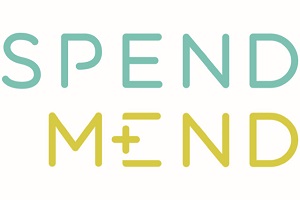SPONSORED CONTENT
The 340B program has been bombarded with threats over the past five years. 340B professionals have had their hands full defending the safety net program from contract pharmacy restrictions, state-level reporting, proposed legislative changes, the IRA, rebate models, and more. But we are starting to see a new, potentially existential, threat emerge for some covered entities: erosion of their Medicare disproportionate share hospital (DSH) adjustment percentage, an essential criterion for 340B eligibility. The DSH adjustment percentage must be at least 11.75% for DSH hospitals, free-standing cancer hospitals and free-standing children’s hospitals to qualify for 340B; and at least 8% for sole community hospitals (SCH) and rural referral centers (RRCs). Critical access hospitals do not receive DSH funding and therefore are not impacted.
How did we get here?
A hospital’s Medicare DSH adjustment percentage is a function of both the Medicaid patient days divided by the total inpatient days and the Medicare Supplemental Security Income (SSI) days divided by the total inpatient Medicare days. SSI provides monthly payments to people with disabilities and older adults who have little or no income or resources. While the ACA and pandemic waivers helped many hospitals reach eligibility thresholds, we are seeing a number of factors start to reduce DSH adjustment percentages. These include:
- Elimination of 1115 waiver days
- Post-pandemic resumption of Medicaid redeterminations
- A large reduction in the Medicare SSI ratio
And it is expected to get worse in the future. The anticipated reduction in Medicaid days resulting from Medicaid budget reductions and new Medicaid work requirements in the recent reconciliation bill enacted by Congress will reduce the DSH percentage for hospitals across the country. While not a peer-reviewed study, a recent analysis estimated that 314 hospitals could fall below their current eligibility thresholds.
What can we do?
- Like the saying about planting a tree, the best time to start monitoring and managing your DSH percentage is last year but the second best time to start is today. Identifying risks early can give you the flexibility to mitigate the impact. Covered entities should begin to forecast their DSH percentage and update it regularly so they can plan for any changes to their 340B eligibility.
- Identifying threats to your DSH percentages can allow you to employ mitigation efforts to help maintain your eligibility. These might include:
- Improved screening for eligible but unenrolled patients
- Billing techniques, such as ensuring that mother and baby, for deliveries, are counted separately for inpatient days.
- Service line strategies such as expanding non-distinct inpatient psychiatric services
- These discussions should be interdisciplinary endeavors with senior leaders from multiple parts of the organization.
What if we are too late?
Even with early identification and efforts to manage your DSH percentage, you may not be able to retain your DSH eligibility for the 340B program. But there are still strategic decisions you can make to optimize a transition to RRC/SCH (these two CMS hospital classifications have specific requirements) if you meet the 8% threshold such as:
- Timing the transition to RRC/SCH versus letting your DSH eligibility expire
- Other strategies to minimize 340B cost savings losses including use of GPOs, an option only available for RRCs and SCHs.
- Optimizing your biosimilar and orphan drug strategy
- Estimating your new budget
How do we get started?
Getting started sooner than later is the best thing to do. At SpendMend, we would be happy to have a no cost discussion with stakeholders at your facility to dive into these topics in more detail. If you are already a valued SpendMend customer, just reach out to your favorite SpendMend team member. If you haven’t worked with us before, contact sales@spendmend.com to schedule a discussion.

Nick Gnadt is Director of Pharmacy Professional Services at SpendMend. He can be reached at ngnadt@spendmend.com.



